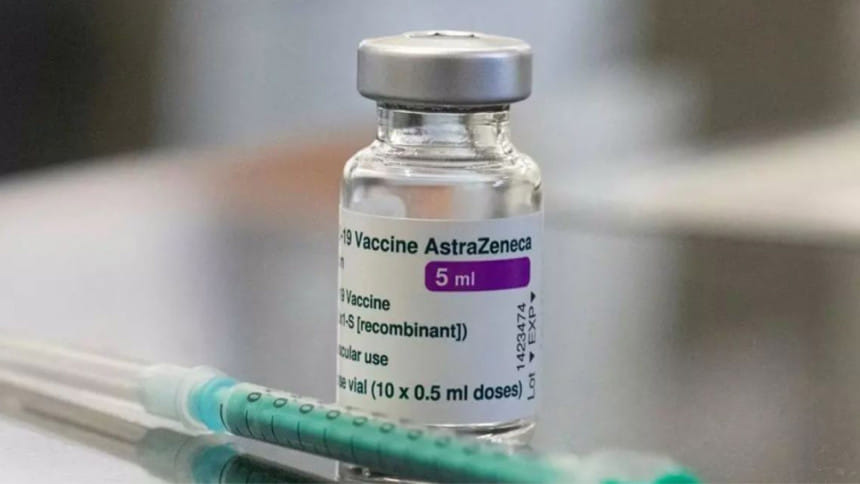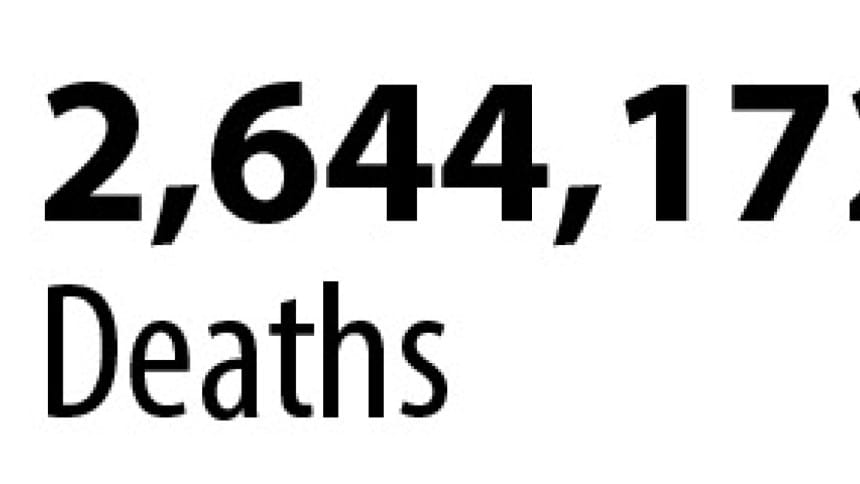AstraZeneca Vaccine: No reason to stop using it

The World Health Organization yesterday said there was no reason to stop using AstraZeneca's Covid-19 vaccine after several European countries suspended the roll-out over blood clot fears.
The WHO said its vaccines advisory committee was currently looking at safety data and stressed that no causal link had been established between the vaccine and clotting.
Denmark, Norway, Iceland, Italy, Bulgaria and Romania postponed or limited the rollout of AstraZeneca vaccines after isolated reports of recipients developing blood clots.
In Asia, Thailand yesterday abruptly delayed its rollout of the AstraZeneca vaccine, stopping Premier Prayut Chan-O-Cha from getting the first jab.
"AstraZeneca is an excellent vaccine, as are the other vaccines that are being used," WHO spokeswoman Margaret Harris told reporters at a briefing in Geneva.
"We've reviewed the data on deaths. There has been no death, to date, proven to have been caused by vaccination," she said.
"Yes, we should continue using the AstraZeneca vaccine," she added, stressing though that "any safety signal must be investigated."
"We must always ensure that we look for any safety signals when we roll out vaccines, and we must review them," she said.
"But there is no indication to not use it."
The WHO statement came after health authorities around the world stressed there was no evidence of any link, but they were acting out of an abundance of caution.
Australia, Mexico and the Philippines said they would continue their rollouts as they had found no reason to alter course. Canada said there was no evidence the jab causes adverse reactions.
Top German public health officials said AstraZeneca's vaccine was safe and Germany would continue to use it.
"Everything we know so far suggests that the benefits of the vaccine, even after every individual case reported, are greater than the risks, and that continues to be the case," Health Minister Jens Spahn told a news briefing.
Lothar Wieler, head of the Robert Koch Institute for Infectious Diseases, added that there was no statistical evidence of excess mortality after any coronavirus shot.
Meanwhile, the EU's drug regulator yesterday said severe allergies should be added to the possible side effects of AstraZeneca's vaccine after likely links were found to a number of cases in Britain.
The European Medicines Agency (EMA) said it had "recommended an update to the product information to include anaphylaxis and hypersensitivity (allergic reactions) as side effects".
FIGHT NOT OVER
In the US, President Joe Biden offered Covid-weary Americans hope of a return to some kind of normality by July 4, marking the national holiday as his target for "independence" from the virus.
"This fight is far from over," Biden said in his first televised prime-time address as president, delivering an emotional tribute to the more than 530,000 Americans who have died from Covid-19.
He said Americans could overcome the virus if they worked together and followed health experts' guidelines on wearing masks and getting vaccinated, reports AFP.
In India, about 3,000 police will be deployed to enforce a week-long curfew and lockdown in the central Indian city of Nagpur from Monday after a 60% jump in coronavirus cases there, officials said.
The commercial and logistics hub in Maharashtra state will be the first Indian city to go back into a wholesale lockdown since authorities lifted nationwide curbs in June last year, reports Reuters.
In Italy, 's government was set to announce the closure of schools, restaurants and shops across most of the country yesterday as a new wave of infections puts hospitals under strain.
The country recorded almost 26,000 new Covid-19 cases and 373 deaths.
'GREATEST MORAL TEST'
Since first emerging in China at the end of 2019, the coronavirus has infected more than 118 million people, with few parts of the globe left untouched. At least 2,631,768 people have died so far around the world.
Countries have jostled for the most effective vaccines and enough doses to inoculate their populations, in some cases many times over.
United Nations chief Antonio Guterres on Thursday lashed out at what he called the "many examples of vaccine nationalism and hoarding" that will prevent some countries from getting the resources to bring their health crises to an end.
"Many low-income countries have not yet received a single dose," he said.
"The global vaccination campaign represents the greatest moral test of our times."


 For all latest news, follow The Daily Star's Google News channel.
For all latest news, follow The Daily Star's Google News channel. 




Comments